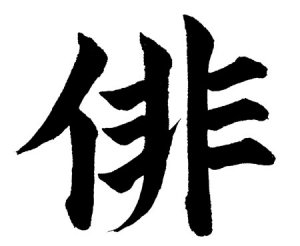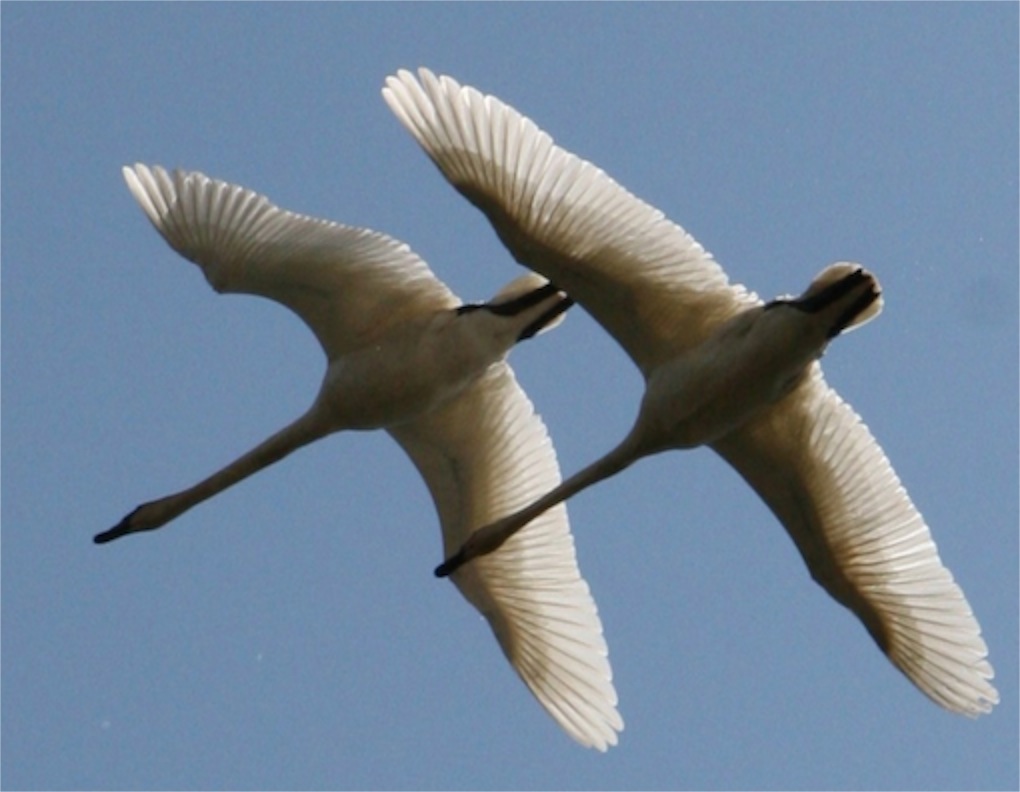In search of Haiku
21/05/12 05:25
I have had some experiences in this life that give me stories that are easy to tell. But the story is never the experience. I think that experiences of awe and wonder might be better expressed in poetry, but I am a prose writer. When I have tried my hand at poetry, I have found myself disappointed. Like many arts, it looks easier than it is. So I read poems and occasionally I try my hand at one. I have read poems that capture experiences powerfully and reach beyond the capacity of ordinary words to capture the emotional impact of an event. But when I try to write such poems, I usually come up short.
I have to come up with a poem for my book club tomorrow. I made the assignment myself. I had campaigned for reading one of the books on imagination that have been inspiring me. The group chose Jean Paul Lederach’s The Moral Imagination. He shares several Haiku poems and speaks of the process of creating a Haiku as one of the ways of opening up imaginations to begin to grasp new alternatives in the midst of conflicted situations. So it made sense to try our hands at Haiku. As temporary discussion leader for the group, I suggested that we each write a Haiku for our meeting tomorrow.
I haven’t written my Haiku and the deadline is looming.
I think that writing poems might be like reading them. I can’t seem to just sit down and read a book of poems like I read a novel or a work of nonfiction. I have to read a poem and mull it. Sometimes I have to read a poem out loud to catch its rhythm. Sometimes I have to read a poem several times before it opens to me and reveals that deep moment of revelation. I go through lots of books a month. A single book of poems, on the other hand, will sit on my headboard for months before I go on to the next one.
Probably the best poems are not produced under the pressure of a deadline. Yet there I am with a deadline to write a poem. Worse yet, it is a deadline I imposed on myself.
 And Haiku is tough. Being a Japanese language art form, it doesn’t translate well into American English. In Japanese there are a lot of words that have five or seven syllables. The basic 5-7-5 rhythm that is reflected in Haiku is part of the natural rhythm of Japanese language. Various forms of five and seven are employed in most Japanese slogans. We tend to prefer shorter words. Because of the natural rhythm of the Japanese language, Haiku and Tanka forms are easily memorized and linger naturally in the brain. In English, we tend to prefer other rhythms. The songs that get stuck in our brains have different rhythms.
And Haiku is tough. Being a Japanese language art form, it doesn’t translate well into American English. In Japanese there are a lot of words that have five or seven syllables. The basic 5-7-5 rhythm that is reflected in Haiku is part of the natural rhythm of Japanese language. Various forms of five and seven are employed in most Japanese slogans. We tend to prefer shorter words. Because of the natural rhythm of the Japanese language, Haiku and Tanka forms are easily memorized and linger naturally in the brain. In English, we tend to prefer other rhythms. The songs that get stuck in our brains have different rhythms.
If only I had thought to assign a limerick instead of a haiku!
I have had the experience that I am quite sure should give rise to poetry. I have described it several times, but it still takes me a lot more words to describe what happened.
On Saturday evening, I drove along the edges of a thunderstorm for quite a while between Broken Bow and Thedford. I could see the hail in the barrow pits, but the storm had passed before my arrival on that stretch of road. By Thedford, when I turned north to drive through the sandhills to Valentine, the storm had passed to the east. It was evening, so I had the dark, dark cloud off to the east, on my right, and the bright sun starting to set on the west, to my left. It was like I was driving down the line between darkness and light. I think it might have made a dramatic photograph. The road is straight, but it goes up and down as it travels over the hills. However, I was in a hurry to get home. I had been up for many hours by that tine, had been responsible for six hours of classroom presentation, had driven for another four hours and still had three hours of driving ahead of me. I didn’t think I had time to stop to capture the perfect photograph. Furthermore, my photography skills are limited. My photos serve to remind me of experiences, but they rarely capture experiences.
I noticed the beauty, but I made no attempt to record it.
Then as I was driving, I caught motion off to the east. Against the dark of the clouds, a pair of white swans was flying. They crossed the road in front and above my truck. It seemed like they were very close, perhaps 25 feet or so above the truck. They flew off to the west and disappeared into the brilliant sunset.
It was amazing. It was stunning. I was awestruck.
When I tried to report the experience to my friend Ron the next morning, he, who has done a lot of driving in Nebraska, suggested that it was more the product of having driven too many miles in too few days. He joked that I might be seeing things that do not exist.
I know, however, that the birds were real. I am not an ornithologist, and I know that even experts are known to confuse swan identification. But these birds were big. It makes sense to me that they were trumpeters, the largest and heaviest waterfowl I am ever likely to see in the wild. I wasn’t expecting to see swans. The Nebraska Sandhills are known for the cranes. And it is late in the season for the larger numbers of transient birds that come each year.
There they were, however, right in front of me. The experience made the whole trip worthwhile. As they say, “I’m just glad I was there to see it.”
The Haiku, however, remains unwritten. Not that I haven’t tried. Here is my best attempt so far. It describes, but does not capture. It seems starkly devoid of emotion.
I have to come up with a poem for my book club tomorrow. I made the assignment myself. I had campaigned for reading one of the books on imagination that have been inspiring me. The group chose Jean Paul Lederach’s The Moral Imagination. He shares several Haiku poems and speaks of the process of creating a Haiku as one of the ways of opening up imaginations to begin to grasp new alternatives in the midst of conflicted situations. So it made sense to try our hands at Haiku. As temporary discussion leader for the group, I suggested that we each write a Haiku for our meeting tomorrow.
I haven’t written my Haiku and the deadline is looming.
I think that writing poems might be like reading them. I can’t seem to just sit down and read a book of poems like I read a novel or a work of nonfiction. I have to read a poem and mull it. Sometimes I have to read a poem out loud to catch its rhythm. Sometimes I have to read a poem several times before it opens to me and reveals that deep moment of revelation. I go through lots of books a month. A single book of poems, on the other hand, will sit on my headboard for months before I go on to the next one.
Probably the best poems are not produced under the pressure of a deadline. Yet there I am with a deadline to write a poem. Worse yet, it is a deadline I imposed on myself.

If only I had thought to assign a limerick instead of a haiku!
I have had the experience that I am quite sure should give rise to poetry. I have described it several times, but it still takes me a lot more words to describe what happened.
On Saturday evening, I drove along the edges of a thunderstorm for quite a while between Broken Bow and Thedford. I could see the hail in the barrow pits, but the storm had passed before my arrival on that stretch of road. By Thedford, when I turned north to drive through the sandhills to Valentine, the storm had passed to the east. It was evening, so I had the dark, dark cloud off to the east, on my right, and the bright sun starting to set on the west, to my left. It was like I was driving down the line between darkness and light. I think it might have made a dramatic photograph. The road is straight, but it goes up and down as it travels over the hills. However, I was in a hurry to get home. I had been up for many hours by that tine, had been responsible for six hours of classroom presentation, had driven for another four hours and still had three hours of driving ahead of me. I didn’t think I had time to stop to capture the perfect photograph. Furthermore, my photography skills are limited. My photos serve to remind me of experiences, but they rarely capture experiences.
I noticed the beauty, but I made no attempt to record it.
Then as I was driving, I caught motion off to the east. Against the dark of the clouds, a pair of white swans was flying. They crossed the road in front and above my truck. It seemed like they were very close, perhaps 25 feet or so above the truck. They flew off to the west and disappeared into the brilliant sunset.
It was amazing. It was stunning. I was awestruck.
When I tried to report the experience to my friend Ron the next morning, he, who has done a lot of driving in Nebraska, suggested that it was more the product of having driven too many miles in too few days. He joked that I might be seeing things that do not exist.
I know, however, that the birds were real. I am not an ornithologist, and I know that even experts are known to confuse swan identification. But these birds were big. It makes sense to me that they were trumpeters, the largest and heaviest waterfowl I am ever likely to see in the wild. I wasn’t expecting to see swans. The Nebraska Sandhills are known for the cranes. And it is late in the season for the larger numbers of transient birds that come each year.
There they were, however, right in front of me. The experience made the whole trip worthwhile. As they say, “I’m just glad I was there to see it.”
The Haiku, however, remains unwritten. Not that I haven’t tried. Here is my best attempt so far. It describes, but does not capture. It seems starkly devoid of emotion.
At the border of
storm darkened skies and sunset,
suddenly two swans!

I’ll keep working on it. Maybe I ought to learn Japanese.